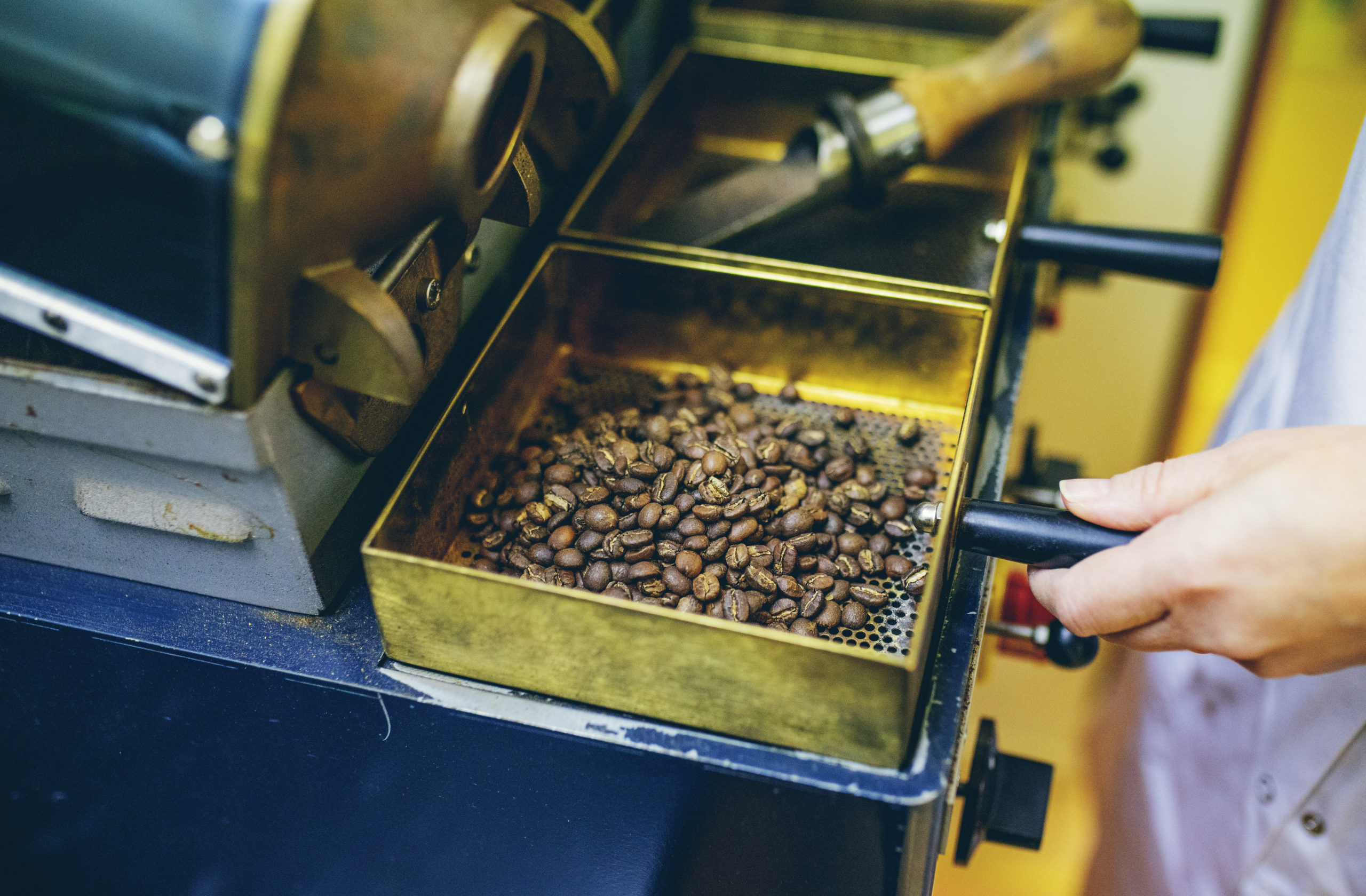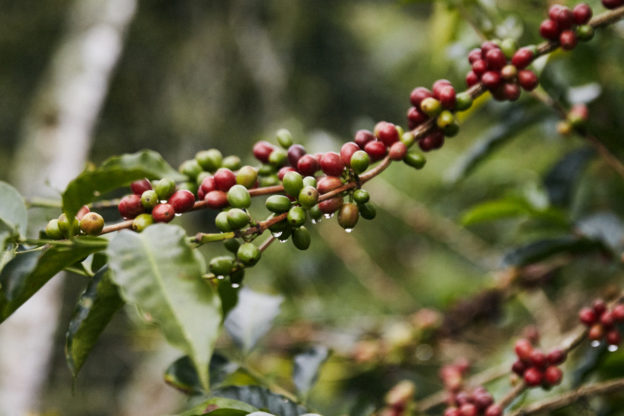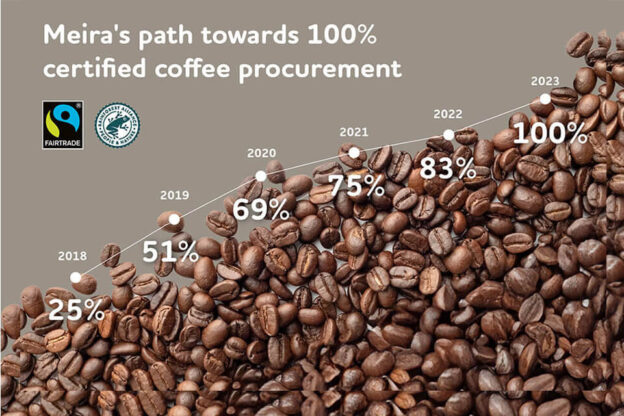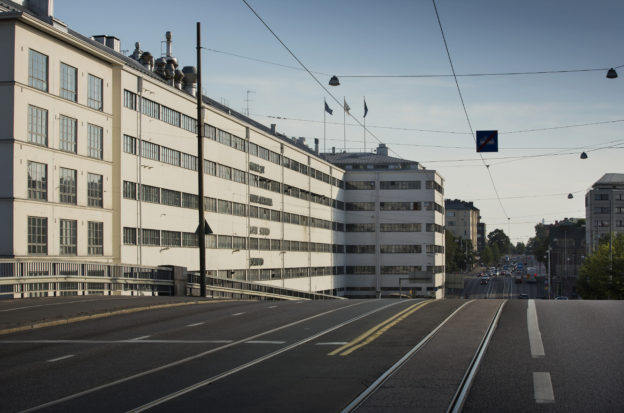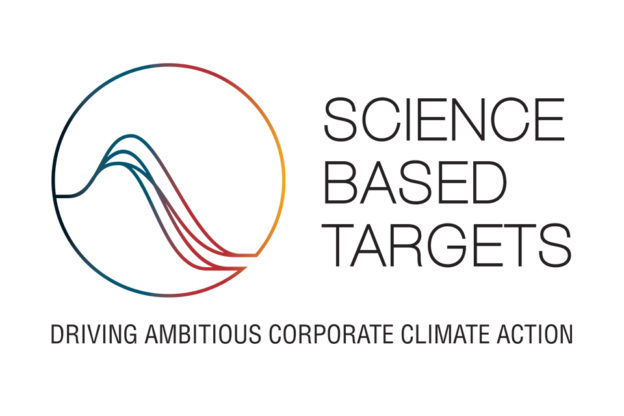When was the last time you poured chilled coffee into a sink? It was probably not that long ago, as 13% of Finnish food waste is coffee. Every year, millions of kilos of food end up in trash in Finnish homes. One Finn throws away 20 kilos of food each year, and 2.6 kilos of this is coffee. Only vegetables and fruits end up in the trash more than coffee. [1]
National Food Waste week (Hävikkiviikko) in mid-September wants to raise the appreciation of food, and Meira has the same goal. Coffee is too valuable to be poured down to the drain.
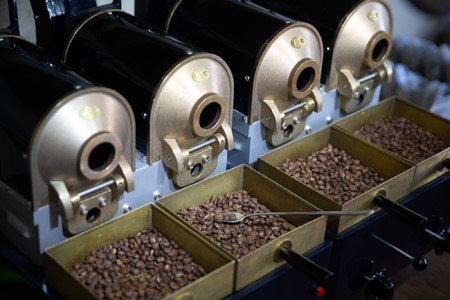
“I think people don’t consider coffee as food waste in the same way as they do about bread, for example. However, coffee beans are a valuable raw material, which requires the input of hundreds of professionals in their fields and a journey from plantations on the other side of the globe to Vallila, Finland, before they can be processed to consumable coffee. We want to play our part in reducing food waste which is why we strive to increase people’s awareness of coffee as a high-quality raw material,” says Marleena Bask, Meira’s Director of Sustainability and Strategy.
Most of the coffee waste ends up in the sink in those households where coffee is also drunk the most. The most common reason for coffee waste is that the amount of coffee to be made at home cannot be estimated correctly.
Coffee production is a multi-staged process
The coffee beans used by Meira come from Honduras, Brazil, Kenya, Colombia and Uganda, among others. Typically, coffee is grown on independent small farms or family farms, whose expertise in both sustainable and productive cultivation practices and coffee processing are the first steps in producing quality coffee.
On small farms, coffee is often picked by hand, after which the berries are washed, and the flesh and skin are removed. The remaining clean coffee beans are dried and transported either to a collection station or directly to a coffee processing plant. The quality of the beans is already checked several times at this stage of production. The beans or coffee berries are visually inspected as they arrive from the farms. At a processing plant, the quality of beans is often checked mechanically by analyzing their size, color and breakage. Beans are also tasted. Finally, they are quality separated and prepared for export.
“It is important for us to ensure that our coffee is produced professionally and responsibly. For this reason, we work closely with our long-term partners in the countries of origin and procure coffee beans from responsibility-certified farms. We also regularly visit our own coffee farms and processing plants in our countries of origin. So we really know where our coffee comes from and what it has taken from the entire chain to produce it,” says Bask.
Finns drink very high-quality coffee
The Finnish coffee taste is quite specific, and we drink the highest quality coffee in the world. This requires that the taste of the coffee is checked several times before the coffee beans travel to Finland.
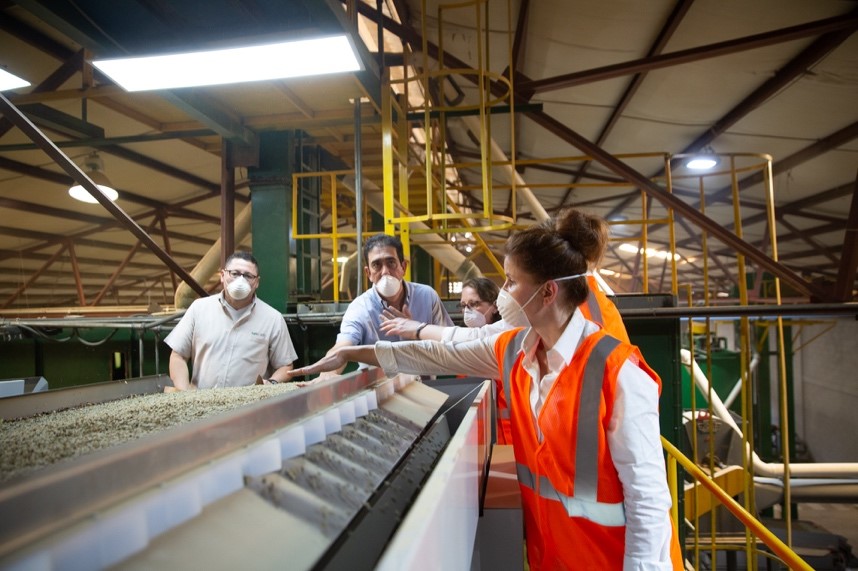
Prior to the purchase decision, a so-called offer sample of pre-selected coffee batches will be delivered to Meira, based on which the coffee batches to be imported to Finland will be selected. After this, the quality is ensured by tasting the beans before shipping. The final quality assurance and tastings are done in Vallila before and during the production process and from the final finished products.
“It is important to start quality assurance work even before the approval of sales batches, so that we do not transport coffee to Finland from thousands of kilometers only to find that it does not meet our quality requirements. Coffee is a matter of the heart for us Meirans and all Finnish coffee lovers. We hope that after driving a long and tremendous journey from fields to fields to Finnish homes in many different stages, as much coffee as possible will end up for people to enjoy, and not down the sink,” says Bask.
Food Waste Week is celebrated 13.-19.9.2021.
Contact information:
Marleena Bask
Meira’s Director of Responsibility and Strategy
+358 50 3523643
[email protected]
